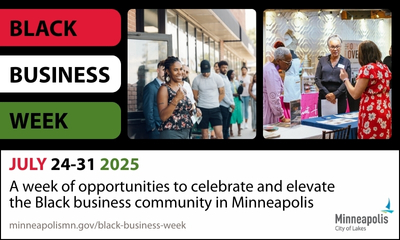BY ELINA KOLSTAD
If you’ve streamed all of Netflix’s latest and don’t want to venture out into the heat, look no further than Seward e-Democracy for your next dose of drama. Earlier this spring they held us transfixed with the Saga of the Seward Garage Sales, which consisted of dueling garage sale dates, and now they keep us at the edge of our seats with Seward Neighborhood Group (SNG) Board of Directors: Rift of Ages, in which public recriminations and acrimony have left many wondering “what on earth is going on with SNG!?”
At the center of this drama is Tiger Worku who, at 18 years old, proudly points out that he is the youngest person to serve as the neighborhood group’s board president and that he is the youngest board president currently serving in the city. Tiger is well known for his activism in association with Black Lives Matter (BLM) and you may know him from going viral for his “can of soup” interview with CNN. Mr. Worku’s public stance has drawn the ire of some neighborhood residents and clearly influenced some of the posts which called him out specifically and aggressively.
It seems that at the April board meeting a motion was put forward to remove both Mr. Worku from his role as president and Marcel Thompson from his role as vice president of the board. Initially the thread on e-Democracy focused on claims that Mr. Worku and Mr. Thompson voting for themselves represented a conflict of interest and that they should have recused themselves, thus removing them from their roles, but not the board as a whole. Mr. Worku and Mr. Thompson stuck by their votes which at an 8-to-8 split left them in their positions. This was attacked on the thread, specifically Mr. Worku for his vote, and allegations were made that the organization was on the edge of financial insolvency as a result. In the wake of the April meeting, half of the board resigned, leaving it without the ability to conduct business. Later it was established that it was not only permissible for the two to vote in favor of themselves, but that the motion itself was invalid because one motion cannot be made to remove two people from their roles; to achieve this end two motions should have been made.
While the accusations and insults flew about this vote and how people behaved in its aftermath, no explanation was given of why the motion was made in the first place. This, combined with the aggressive attacks on Mr. Worku, gave the appearance of personal vendettas being indulged, which was counterproductive and unbecoming, especially as some of those posting were former board members themselves. Matters were not clarified by the sharing of the actual motion itself: “Based on the lack of confidence in their ability to lead, be inclusive of their perspectives, uphold democratic practices, uplift collective decision-making, and do necessary work for the organization, I move that Tiger and Marcel be removed from the executive committee and their positions as president and vice president. This is not a removal from the board.”
It was only after I contacted multiple people involved behind the scenes that I became aware of the circumstances that led up to the dramatic implosion of the SNG board of directors. It was already clear that the board elected at the end of 2020 did not have any “old guard” members, or people who had served on the board or been involved in the organization for more than a year; what I didn’t realize was that this was an organized effort in which a group of young people ran for the board, rallied support from their friends and neighbors, and effectively took over the board. This seems to have been rooted in feelings that SNG was not adequately representing the neighborhood, specifically young people and the residents north of Franklin Avenue who are overwhelmingly people of color (POC) and immigrants. I understand this feeling, I myself resigned from serving on the SNG board in response to an incident at a committee meeting where neighbors’ feedback was shut down in a disrespectful manner. While the matter was addressed at a following board meeting and a representative of the neighbors in question was given a chance to air her grievances and received an apology, I felt that nothing was done to prevent such incidents from happening in the future. In this particular instance the neighbors in question were mostly older and white; I wonder if younger people and/or POC and immigrants have felt similarly but not known of a way to bring such treatment to light.
The sentiment behind young people wanting to take over the board in response to feeling shut out by the existing movers and shakers is relatable, but what I have found out about the actions of the new board after they gained control has been concerning. It seems that some of their earliest actions were to remove established volunteers from roles relevant to the board which seems not only vindictive but is also shortsighted given that, as anyone who has worked in a nonprofit in any capacity knows, good volunteers are hard to find. More concerning, however, is that they have not kept up with posting meeting minutes, attendance at meetings is not always noted, there are accusations that the minutes posted do not accurately reflect what happened at meetings, and monthly financial reports have not been made. It would seem that the new board had ambitious plans to remake the organization in a new image; unfortunately, they do not seem to understand the legal framework within which they must operate as a nonprofit. As of now the city has gotten involved through the Neighborhood and Community Relations Department (NRC) and has indicated that SNG is eligible for probation due to these events and must hold a meeting where all neighbors are able to participate and vote on new board members. Now it is up to the neighbors to step up and determine the future of the organization meant to represent us all.
When I resigned from SNG in 2018 I suggested that it would be helpful for all board members to read and understand the bylaws, for the board to have an annual refresher of Robert’s Rules of Order so that all board members had an idea of how meetings should be run, and to expand efforts for more inclusive representation of Seward. I stick by these suggestions now. I would also add the suggestion that third-party professional board training be required of all new board members (this should include current board members for the first round) whether they have served on other boards or not. This avoids any feelings that certain board members are being treated differently than previous board members and using a third party ensures that existing board politics do not come into play.
Most of the people involved in the neighborhood group, both young and old, recognize the need for the organization to change, and many have commended the work and accomplishments of the new board members, including a highly successful drive to tackle disparities in access to the Covid-19 vaccine for neighbors in public housing and POC.
Most of us agree, the organization needs more diverse participation, the segregation seen north of Franklin Avenue needs to be addressed, and young people need to be involved in these changes. But history is also important. Understanding why things are done a certain way, what has failed in the past, and even the lived experience of older neighbors is valuable as well. For example, I suggest that reading a biography of Robespierre may be beneficial for those looking to start a revolution.






















